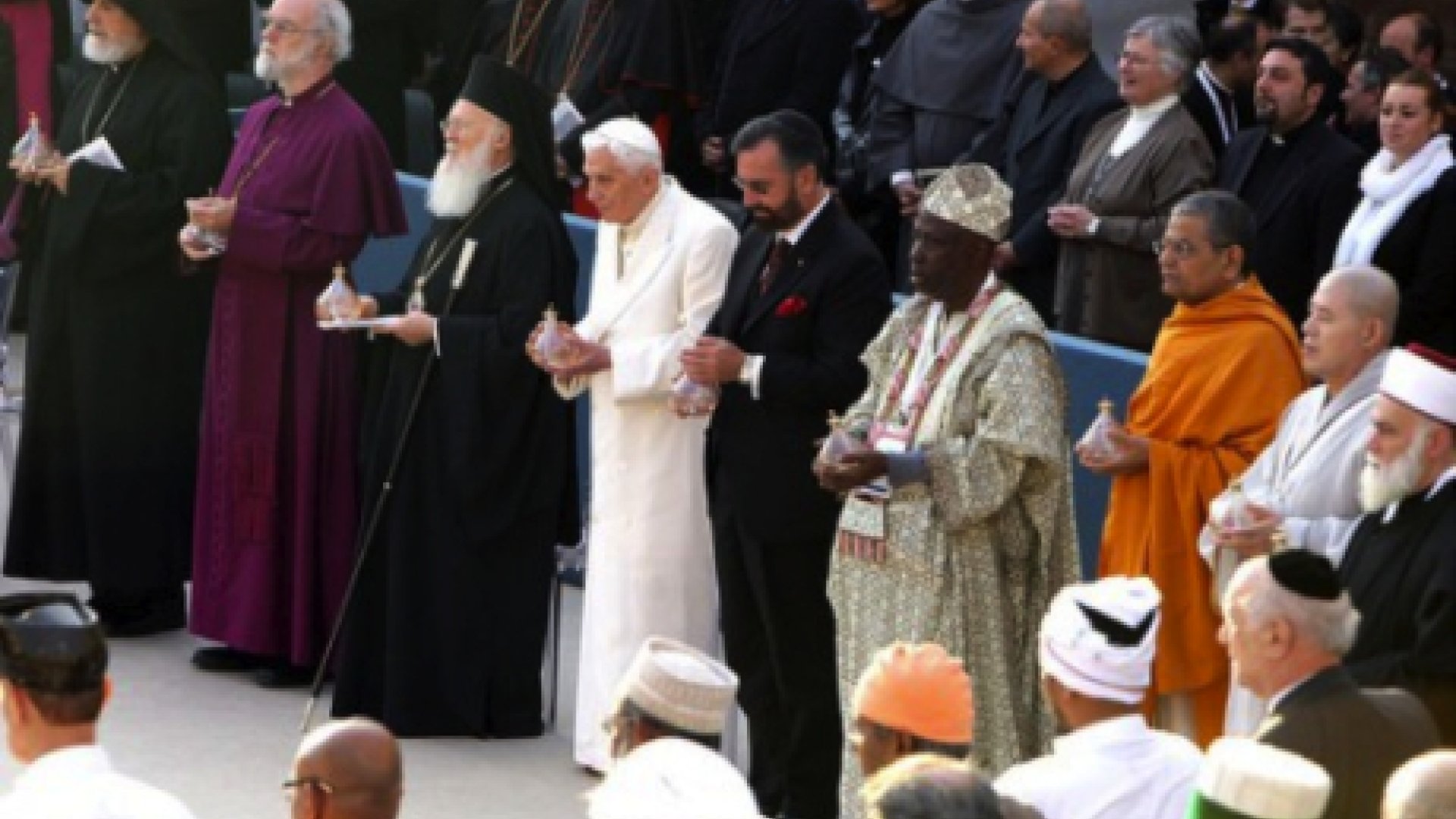Duty to Spread the Faith

Benedict XVI at the interreligious meeting in Assisi (2011)
Ecumenism denotes the search for worldwide religious unity. As in the case of religious liberty, Catholicism and Modernism each approach ecumenism in different ways based on their divergent understandings of truth.
Modernism believes that religious knowledge emanates from the individual. This knowledge arises from within as a subjective impulse of the conscious or subconscious. All religions, therefore, are more or less good and praiseworthy since they all, in different ways, manifest and signify man’s inborn religious instinct. There are thus as many different understandings of God as there are men. All these various notions of truth and of the divine deserve respect, for they are all legitimate expressions of the human spirit. Through mutual dialogue, different religious come to understand and respect one another, and this in turn promotes healthy peace and compromise.
Religion Revealed Directly by God
Catholicism, on the other hand, teaches that it is the one true religion revealed directly by God. Only the Catholic Faith can bring lasting happiness and true peace, not only between men in this life, but between man and God for all eternity in Heaven. Since God wants every human being to possess this truth and happiness, the Catholic Church has a duty to spread its teachings and manifest its presence as far and wide as possible. These teachings come directly from God Himself and are thus free of all falsehood, and the Church, therefore, must lovingly encourage all souls, for their own good, to abandon error and embrace the truth.
Catholicism, through ecumenism, upholds the rights of God and promotes conversion while Modernism pursues dialogue and compromise.